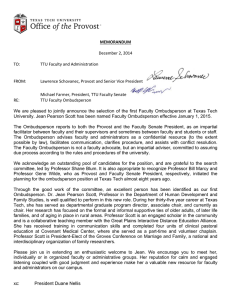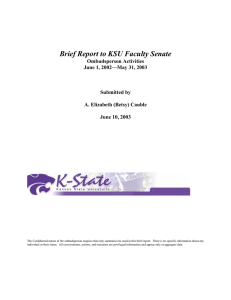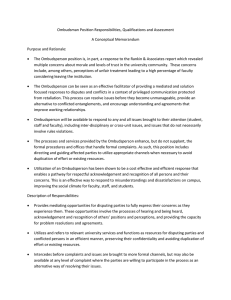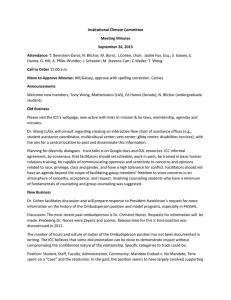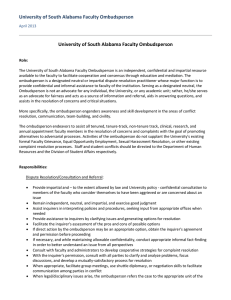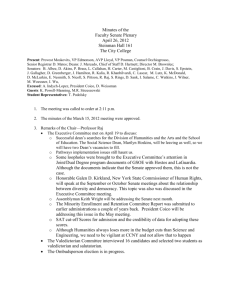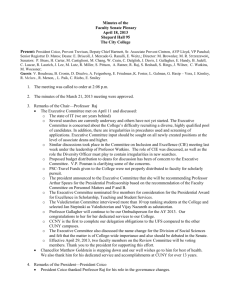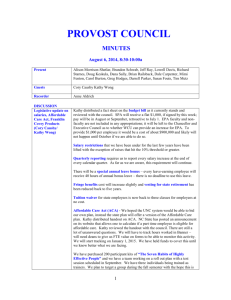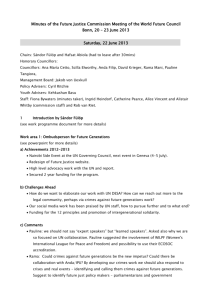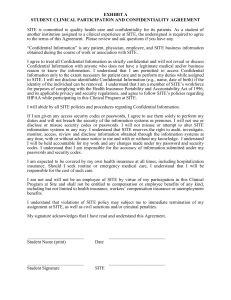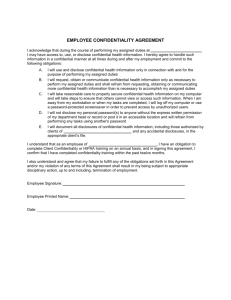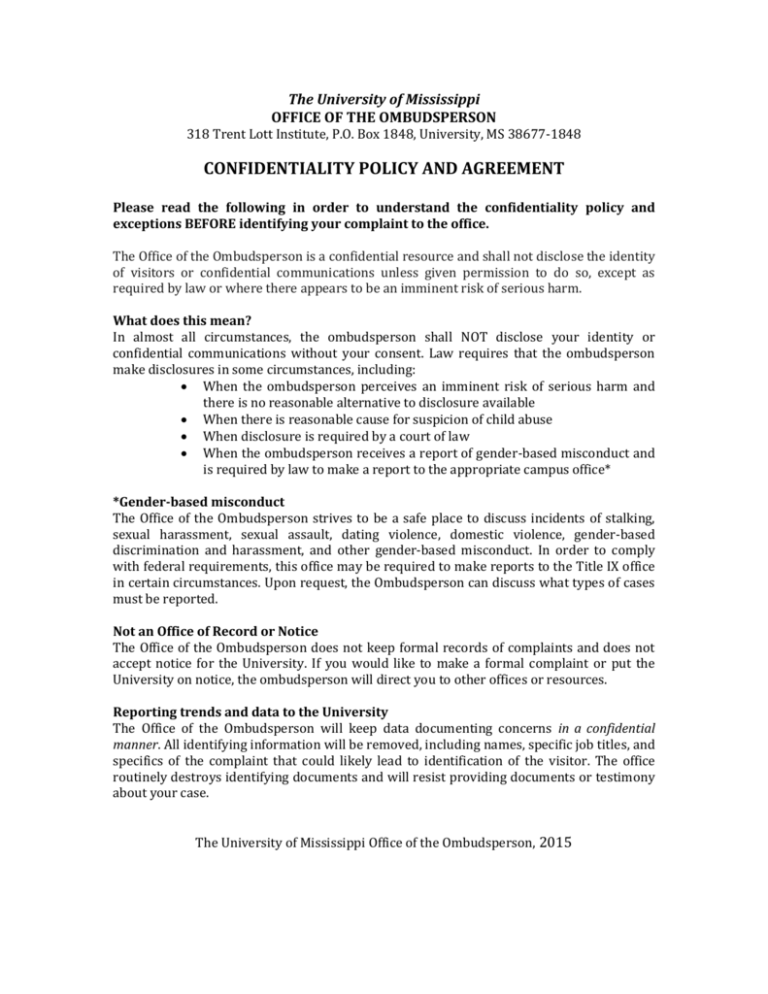
The University of Mississippi
OFFICE OF THE OMBUDSPERSON
318 Trent Lott Institute, P.O. Box 1848, University, MS 38677-1848
CONFIDENTIALITY POLICY AND AGREEMENT
Please read the following in order to understand the confidentiality policy and
exceptions BEFORE identifying your complaint to the office.
The Office of the Ombudsperson is a confidential resource and shall not disclose the identity
of visitors or confidential communications unless given permission to do so, except as
required by law or where there appears to be an imminent risk of serious harm.
What does this mean?
In almost all circumstances, the ombudsperson shall NOT disclose your identity or
confidential communications without your consent. Law requires that the ombudsperson
make disclosures in some circumstances, including:
When the ombudsperson perceives an imminent risk of serious harm and
there is no reasonable alternative to disclosure available
When there is reasonable cause for suspicion of child abuse
When disclosure is required by a court of law
When the ombudsperson receives a report of gender-based misconduct and
is required by law to make a report to the appropriate campus office*
*Gender-based misconduct
The Office of the Ombudsperson strives to be a safe place to discuss incidents of stalking,
sexual harassment, sexual assault, dating violence, domestic violence, gender-based
discrimination and harassment, and other gender-based misconduct. In order to comply
with federal requirements, this office may be required to make reports to the Title IX office
in certain circumstances. Upon request, the Ombudsperson can discuss what types of cases
must be reported.
Not an Office of Record or Notice
The Office of the Ombudsperson does not keep formal records of complaints and does not
accept notice for the University. If you would like to make a formal complaint or put the
University on notice, the ombudsperson will direct you to other offices or resources.
Reporting trends and data to the University
The Office of the Ombudsperson will keep data documenting concerns in a confidential
manner. All identifying information will be removed, including names, specific job titles, and
specifics of the complaint that could likely lead to identification of the visitor. The office
routinely destroys identifying documents and will resist providing documents or testimony
about your case.
The University of Mississippi Office of the Ombudsperson, 2015

